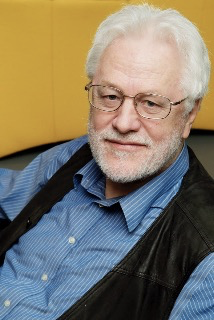
Solving complex problems is one of the most urgently required skills in our current time. As technologies become more advanced, the possible solutions created by them become more and more complex to understand, design for and successfully implement. This can be seen across multiple industries and is causing significant front line issues to reliability, maintenance, project cost, product performance and overall schedules.
In this one-day course a systematic methodological process for applying to technical complex problem solving shall be taught through an interactive workshop. Each stage of the process shall be expanded to include real-world examples in addition to various approaches for tailoring and applying the process.
OUR SYSTEMS ENGINEERING BASIS
1. Stakeholder analysis is a deep ongoing discipline. It is far in advance of simpler user/customer considerations, and a key to dealing with complex systems.
2. System and Project stakeholder improvement Objectives all can, and must be, specified quantitatively, and in enough detail to handle the complexity of the stakeholders. These quantified objectives form the logical and clear basis for judging all strategies and architectures.
3. Multiple costs, both short and long term, are resource constraints, that need articulation and must be used to judge and prioritize all potential strategies and architecture.
4. Multidimensional Analysis of multiple design strategies, against multiple stakeholder objectives and costs using a Value Impact Estimation table is a powerful way to keep track of very complex systems at multiple related levels of concern.
5. Decomposition of complex systems: we will show number of advanced methods for decomposing complex problems and projects, so that we can create a value prioritised stream of cumulative value delivery, for early results, for intelligibility of complex system. This is advanced agile engineering
OUR WORKSHOP BASIS:
We will choose a sample classroom problem to work on, possibly one which participants think is interesting or useful
We will divide into 2 person teams, who will work on part of the problem, and we will pool the results of all teams in one coherent dynamic model of specification.
We will use ValPlan as an app (but everything can be done in any word processor or spreadsheet) and use Planguage as a well defined free way to articulate ideas.
We will do the best we can to teach as much as we can in the classroom day. But we will probably only manage to sample 20-40 of the well over 100 specific tools in the books.
We hope that is enough to light your fire, and enable you to bring these ideas into your personal work and to share with your personal environment.
The technologies are all free forever, and can be spread or used as much as you like. Everthing is based open literature.
The methods have been used, researched, and documented, on small and very large scale at well known multinational companies such as Intel, HP, Boeing, Ericsson, Philips, Medtronic and many
others. Including several Swiss Banks! The methods are proven scale free, and they can be gradually adopted to improve your current systems engineering culture, as they prove themselves useful.
ALL PARTICIPANTS RECEIVE THE FOLLOWING:
1. Stakeholder Engineering (digital book)
2. Value Requirements. (Digital book)
3. System Engineering Architecture (digital book)
4. Competitive Engineering (digital book)
• Understanding and application of many Systematic methodological processes for applying to technical complex problem solving
• Ability and motivation to continue learning more based on the included written books.
ALL roles dealing with Complex technical problems. Notably:
- Systems Engineers
• Technical Leaders
• Project Managers
• Requirements Engineers
• System Architects
• Product Owners
• Project Managers
• Development Engineers
• Verification and Validation Engineers
• Quality Engineers
Regular: 800 CHF
1 tag

Tom Gilb is the author of 9 books. Current printings include “Software Inspection” (1993) and “Principles of Software Engineering Management” (1988, now in 20th printing). His latest book is "Competitive Engineering: A Handbook For Systems Engineering, Requirements Engineering, and Software Engineering Using Planguage." He coined the term ‘software metrics’ with his book of that title in 1976.
Much of his work is available on his website, www.Gilb.com. He is currently a consultant, teacher and author in partnership with his son Kai. He mainly serves multinational clients in improving their organizations and methods. He joined IBM in 1958, and started freelance consulting in 1960.
He has worked with major multinationals such as Boeing, Bosch, Qualcomm, HP, IBM, Intel, Nokia, Ericsson, JP Morgan, Deutsche Bank, Credit Suisse, Microsoft, US DOD, UK MOD, Norway DoD, Citigroup, Schlumberger, Tektronix, GE, Thales, Rolls Royce, Sony, Hitachi, Philips Medical Systems, Siemens Medical, and many others – including smaller organizations such as. Confirmit (Survey systems), University of Trondheim IT Department,
His latest interest is development and spread of his Planning Language, ‘Planguage’, described in his CE book, and its application in top management planning, as well as a wide variety of systems applications, for example advanced security management (2022).
He has a large number of digital books at gilb.com, and https://leanpub.com/u/tomgilb, and will send free copies to students. Many free or very large samples.
He has been member of INCOSE for 2 decades, and is an active member of the Norwegian chapter NORSEC. He happily lectures at INCOSE local chapters on his worldwide travels and at INCOSE conferences and symposia. He is a frequent guest lecturer at universities worldwide.
He has been named Honorary Fellow of the British Computer Society, BCS.
As of 2022, he is largely business-retired, living near Oslo Norway. But he is very active in writing, researching, holding international talks, and some courses, and meeting people digitally, and helping them to use or learn his methods. While hopefully learning more himself.
